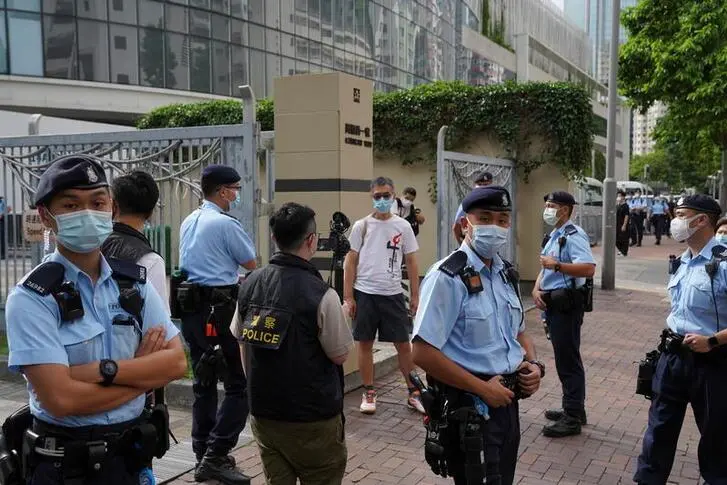PHOTO
HONG KONG - Three former members of a Hong Kong group that organised annual vigils to mark China's 1989 Tiananmen Square crackdown, were jailed on Saturday for four and a half months for not complying with a national security police request for information.
Chow Hang-tung, 38, a prominent Hong Kong pro-democracy activist and former vice-chairperson of the Hong Kong Alliance in Support of Patriotic Democratic Movements in China, was among those convicted by a magistrate's court.
The two others were Tang Ngok-kwan and Tsui Hon-kwong.
The magistrate, Peter Law, said "national security is cardinally important to public interests and the whole nation," while imposing a custodial sentence that fell short of the six months maximum jail term for the charge.
The now-disbanded Alliance was the main organiser of Hong Kong's June 4 candlelight vigil for victims of China's Tiananmen Square crackdown. Every year it drew tens of thousands of people in the largest public commemoration of its kind on Chinese soil.
Some key details of the case, including the overseas organisations and individual alleged to have ties to the Alliance were redacted, after the prosecution applied for "Public Interest Immunity".
Speaking before sentencing, Chow was defiant, while criticising what she described as the "political" nature of the case, and the decision of the court to withhold key facts.
"We will continue doing what we have always done, that is to fight falsehood with truth, indignity with dignity, secrecy with openness, madness with reason, division with solidarity. We will fight these injustices wherever we must, be it on the streets, in the courtroom, or from a prison cell," said Chow from the dock, in a speech that was interrupted several times by Law.
The Alliance was accused by the prosecutor Ivan Cheung as a "foreign agent" for an unidentified organisation after allegedly receiving HK$20,000 ($2,562.69) from it.
A defence lawyer, Philip Dykes, said "not knowing the identity" of the alleged foreign government or entity, was highly unusual and made any mitigation difficult given the foreign agent allegation.
Law said while pronouncing the verdict on March 4 that the prosecution need not prove the subject organisation was a "foreign agent" and that non-disclosure of materials would not undermine a fair trial.
The national security law, which punishes acts including subversion and collusion with foreign forces, has been criticised by some Western governments as a tool to crush dissent.
The Hong Kong and Chinese governments say the law had brought stability since it was enacted in 2020 in response to mass pro-democracy protests in 2019.
(Reporting by Jessie Pang and James Pomfret; Editing by Raju Gopalakrishnan)





















